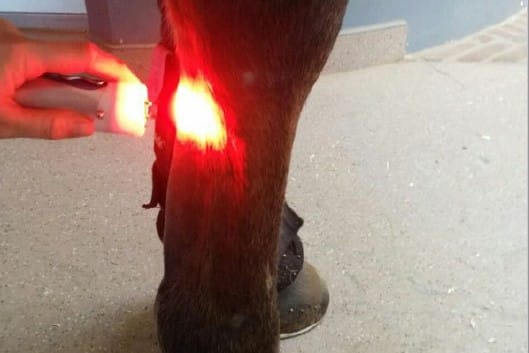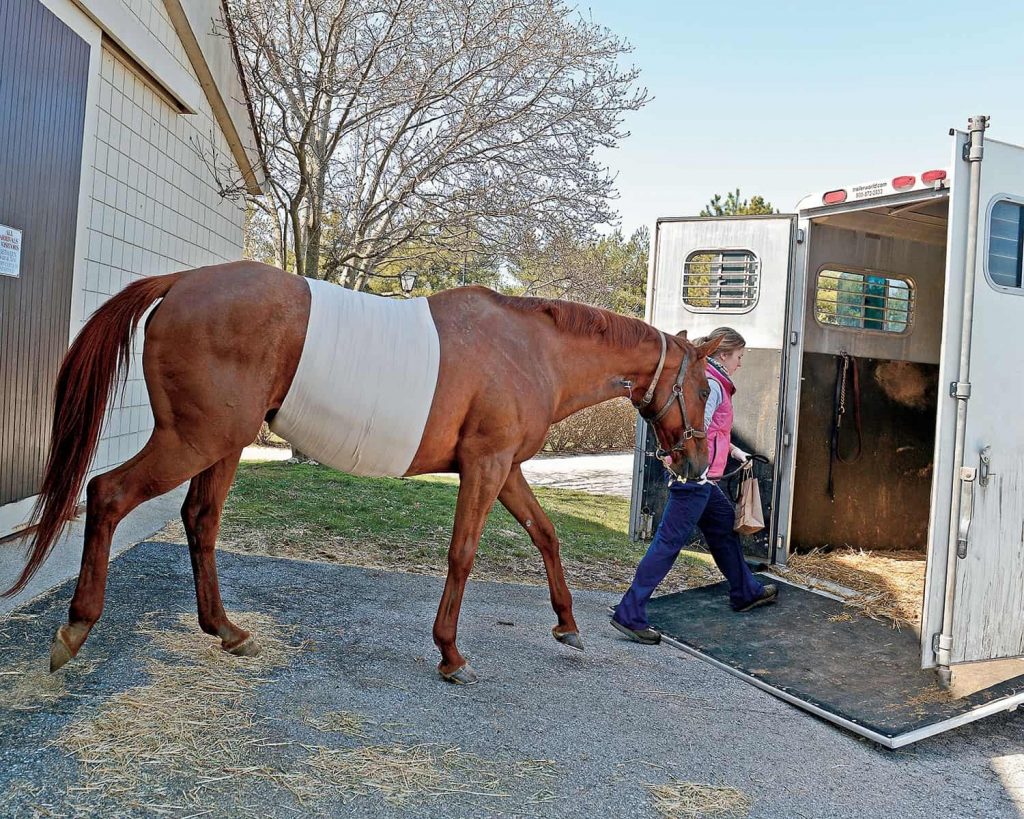
Non-Steroidal Joint Injection Options
Alternative joint injections to corticosteroids can keep horses comfortable and offer a chance at healing rather than simply masking pain.

Alternative joint injections to corticosteroids can keep horses comfortable and offer a chance at healing rather than simply masking pain.

Two equine biomechanics researchers share insight on how to properly use equine training aids such as elastic bands, longeing systems, and various rein rigs.

Learn more about Class IV laser treatments, the current research, and opportunities for further advancement.

When faced with the decision of whether or not to send your senior horse into colic surgery, consider these factors.

Researchers believe this product could serve as an alternative to conventional antibiotics, helping combat antibiotic resistance.

Learn how to recognize a tendon injury and what you and your veterinarian can do to treat it.

Colic surgery outcomes aren’t guaranteed, but acting quickly reduces risks, and mild complications occur far more frequently than serious ones, if at all.

Your horse’s recovery from surgery should start long before heading to the OR.

Researchers are exploring improved ways to heal these notoriously complicated soft tissue structures.

My OTTB recently recovered from a bowed tendon injury. What can I do to help him continue to stay sound?

Research and advancements are improving our understanding of how water exercise benefits both healthy and rehabbing horses.

Work closely with your veterinarian to regularly reevaluate your horse’s progress and determine the success of your horse’s rehabilitation program.

Rehabilitation is vital to a horse’s recovery from illness, injury, or surgery. Learn more during Equine Rehabilitation Awareness Week.

The stress of surgery and the management changes that follow can cause gastric ulcers in horses. An equine nutritionist describes possible solutions.

Learn how ultrasound tissue characterization can help veterinarians guide horses’ return from injury.

Do you know what to do–and just as importantly, what not to do–if your horse displays vague, mild, or serious signs of what might be colic? Your answer could save your horse’s life. Sponsored by Kentucky Performance Products.
Stay on top of the most recent Horse Health news with
"*" indicates required fields